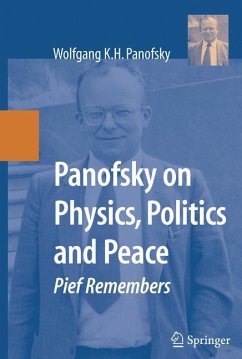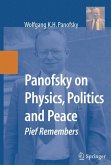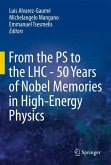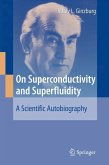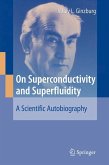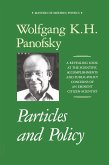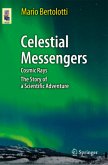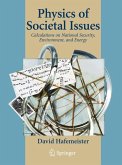This volume contains an "unsystematic account" of my past work; it is not intended to be an autobiography in the conventional meaning of the term. It is not even remotely a scholarly description of the momentous devel- ments in which I was able to participate; rather it is a recital of "memorable" episodes, borrowing from the "compulsory preface" of a facetious British 1 history: "History is not what you thought. It is what you can remember. " Thus this volume suffers from many "sins of omission," including full att- bution of deserved credits, but, it is hoped, only few "sins of commission. " The author is greatly indebted to his colleagues and his wife, Adele, who kindly reviewed many segments of the manuscript describing shared expe- ences. They are Sidney Drell, Greg Loew, Ed Lofgren, Harvey Lynch, Richard B. Neal, Richard Panofsky, and Burt Richter. But the author, ne- less to say, is responsible for any errors. Because of the multitude of topics into which I was drawn concurrently, a strictly chronological account would prove unreadable. Accordingly the book is divided into chapters, each of which covers a limited period of engagement in a coherent subject matter; an approach clearly again unsystematic but hopefully more conducive to conveying the substance of the work. This account does not include a description of my family life.
From the reviews:
"Panofsky on Physics, Politics and Peace is an autobiographical essay by a remarkable man. In it Wolfgang 'Pief' Panofsky relates highlights of his professional life: his accomplishments as a scientist, as a teacher, as the director of the Stanford Linear Accelerator Center (SLAC, the great high-energy laboratory he built), and as an adviser to those making science, technology and weapons policy at both the national and the international level." (Silvan S. Schweber, American Scientist, June, 2008)
"The worlds of high-energy physics and international security have been intimately intertwined since WW II, focusing mainly on production, control, and plans for the use of nuclear weapons. Understanding these connections is vital for anyone wishing to understand and participate in the national political scene. Much of that understanding can be obtained from this record of the life of a man ... . Valuable for scientists, politicians, citizens, and security analysts. Summing Up: Recommended. General readers; lower- and upper-division undergraduates through professionals." (A. M. Saperstein, CHOICE, Vol. 45 (9), 2008)
"Panofsky on Physics, Politics and Peace is an autobiographical essay by a remarkable man. In it Wolfgang 'Pief' Panofsky relates highlights of his professional life: his accomplishments as a scientist, as a teacher, as the director of the Stanford Linear Accelerator Center (SLAC, the great high-energy laboratory he built), and as an adviser to those making science, technology and weapons policy at both the national and the international level." (Silvan S. Schweber, American Scientist, June, 2008)
"The worlds of high-energy physics and international security have been intimately intertwined since WW II, focusing mainly on production, control, and plans for the use of nuclear weapons. Understanding these connections is vital for anyone wishing to understand and participate in the national political scene. Much of that understanding can be obtained from this record of the life of a man ... . Valuable for scientists, politicians, citizens, and security analysts. Summing Up: Recommended. General readers; lower- and upper-division undergraduates through professionals." (A. M. Saperstein, CHOICE, Vol. 45 (9), 2008)
Aus den Rezensionen: "... Ein lesenswertes Buch, das mit mehr als 80 zum Teil farbigen Fotos illustriert ist ..." (Michael Schaaf, in: Physik Journal, 2008, Vol. 7, Issue 6, S. 51)

